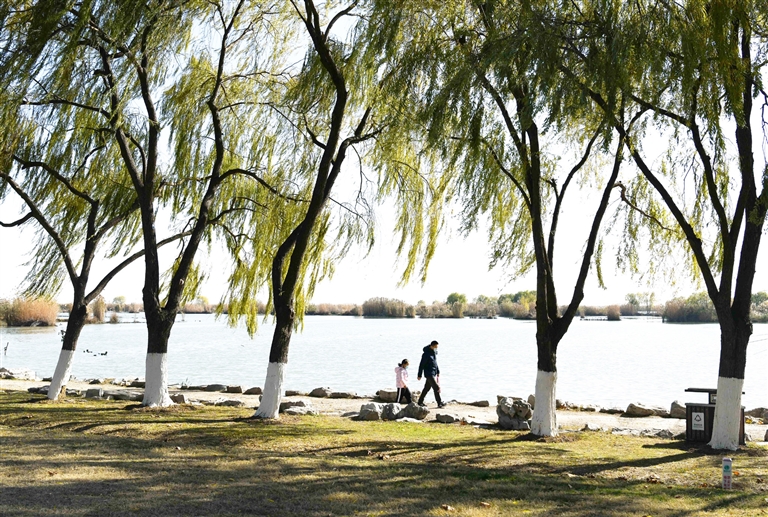
ON a weekend in early October, Hu Wenjue and a group of children gathered in a wetland park. Hu pointed to a wild bird and spoke in low tones while the children were listening carefully. Hu, 31, is a pioneer in nature education in Hefei City, the capital of East China’s Anhui Province. He founded an organization five years ago to offer nature-based programs for children under 12. Through various outdoor activities, such as identifying plants and exploring forests, nature education aims to teach participants, mostly urban residents, how to appreciate, respect, and live in harmony with nature. “Respecting the laws of nature and coexisting in harmony, we need to change our lifestyle, and it is a virtuous cycle,” Hu said. Hu hopes to see more people protect nature voluntarily and promote green development in China. In recent years, China has seen a huge improvement in nature education, which is nourished by the country’s abundant natural resources such as nature reserves, forest parks, wetland parks, and geological parks. Yang Fan, a 27-year-old geologist, has also been engaging in nature education. On weekends and during vacations, she takes children on expeditions to look for fossils and minerals. “Those treasures from hundreds of millions of years ago can tell us about both the consequences of overexploitation and the benefits of ecological restoration,” Yang said. Yang feels participants in her expeditions have become more aware and willing to help preserve the ecosystem. Speaking of this trend, scientist and nature educator Yu Lei recalled an anecdote that happened during his field research in Hefei. “I was once misreported as an illegal fisherman by the local people when I did biodiversity research at night on Chaohu Lake,” Yu said. Chaohu Lake, also known as the “kidney” of the Yangtze River, is the fifth-largest freshwater lake in China. Last month, Hefei City, where the lake is located, was among the 25 cities from 13 countries to be accredited as international wetland cities. Every winter, migratory birds move to Chaohu Lake from the north. In mid-October, Yu and his team had just completed another bird diversity survey in the area. “A total of 274 bird species were observed since our first survey, including 14 species that had never been spotted in this area,” Yu said. Over the years, Chaohu Lake has become a habitat for more rare birds. This can not only be attributed to an improved environment, but also to increased public awareness of the need to protect nature, Yu said. Nature education has also been integrated into the curriculum of public schools in China. At Yangguang Primary School in Hefei, a 30-sqm plot of land has been reserved as a vegetable garden, where students can take nature classes. “Nature education needs to start with children at an early age,” headmaster Wang Ling said. (Xinhua) | 
